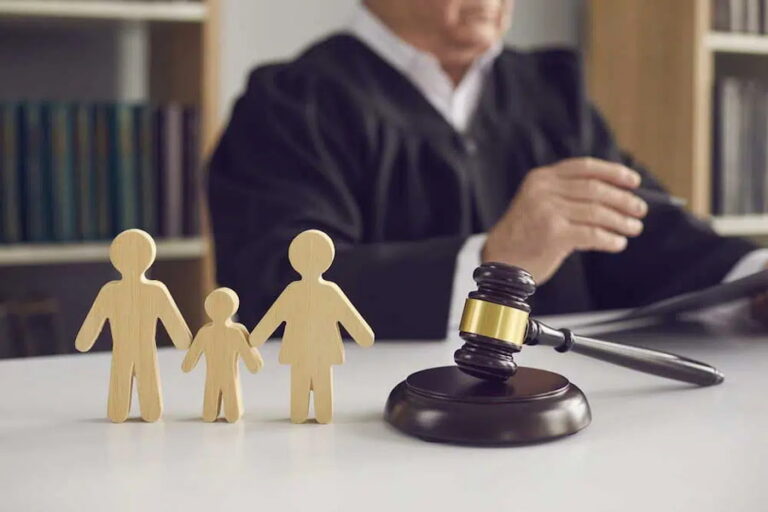In a custody dispute, choosing wisely is essential to guaranteeing the child’s welfare. But with little time for deliberations considering conflicting accounts from the parents, any prejudice on the side of the court could result in a judgement which isn’t optimal for the kids, such as putting them in a home in which they could be abused or neglected. Because of these significant risks, judges might require that a forensic child psychologist or other competent child custody lawyer conduct a custody assessment in a disputed case. When it comes to difficult cases involving contested grounds for complete custody of a kid or questions about the suitability of a parent or guardian, forensic psychologists are particularly helpful. Their years of expertise aid judges in reaching a conclusion that is in the child’s best interests.
Factors Judges Consider in Child Custody Cases
Shared custody agreements are often supported by judges and judges will not continually deny any parent or guardian from their child unless it is truly in the best interest of the child. When judges decide on child custody they’re influenced by what’s best for the child. Occasionally, it’s easier to make that choice than other times. To give you some sort of idea of the complicated things courts have to take into account when considering child custody disputes, it helps to take a look at some of these things. Legal experience from their years as a judge aids judges in reaching a conclusion which is in the best interest of the child.
Judges’ Considerations in Cases Involving Child Custody
Judges typically support shared custody agreements and avoid needlessly denying any parent or guardian relationship with their child. Whenever deciding on child custody, judges are impacted by what’s best for the kid in question. There are situations when that choice is easier to make than others. Take a look at some of the things courts must take into account whenever deciding on child custody disputes to get an idea of the complicated difficulties they face. A judge may consent to a lopsided physical custody arrangement that benefits one parent over the other if the kid is so attached to that parent which causes the youngster distress when they are apart. However, regular custody exchanges along with family therapy could be mandated if a forensic child psychologist or another mental health specialist believes that attachment is harmful to the kid’s best interests.
Parents’ Mental and Physical Health
A judge in a child custody dispute is very concerned about the mental health of the parents. Parental dysfunction, excessive stress, drug or alcohol addiction, and emotional emergencies can all make it difficult for a parent to act in their child’s best interests. As part of a parenting plan, judges have the authority to mandate that parents attend counselling or treatment. When a parent’s ability to properly manage their kid is questioned, more severe policies, such as mandatory drug testing and closely monitored visitation, can be mandated.
The ties that parents have with other adults, particularly their extramarital affairs, are another factor that judges consider. A parent may come under legal investigation if they have sexual partners present when their kid is in the house or if they associate with criminals. Whenever a parent has custody of a kid, a judge might place restrictions on their contact with specific persons through a parenting schedule.
Parental Ability to Take Care of
When determining child custody, judges take into account each parent’s income as well as their ability to follow a parental plan. Family support also becomes crucial; grandparents or other family members who can assist financially or divide childcare duties can strengthen a parent’s case for sole or primary custody, particularly in situations when the other parent is unable to do so. The court assists parents in making the most of their time with their kids unless it is demonstrated that doing so is not in the best interests of the child. In certain situations, such as when a parent’s work prevents them from being able to pick up their child from school and family help cannot be present, summertime partial physical custody may be granted. For most of the year, the kid would continue to exist with the parent who could best provide for what they needed.
Where the Child’s Siblings Are
Sibling unity is typically the goal of the court system. In a custody arrangement, parents who want to split up their siblings have to present a compelling case to the court based on what’s in the best values of the kids. On the other hand, the court could decide to split up siblings in specific situations. If a judge determines that one parent has a stronger capacity to provide for the basic requirements of the abused kid than the other, and the child’s welfare is at risk—for example, if a sibling is abusing or bullying the child—the judge may grant the siblings separate custody.
Final Words
Ultimately, you should prioritise your child’s safety. This entails putting your child’s safety, health, & schooling first and collaborating with your ex-partner to provide an atmosphere of safety and encouragement for them during this extremely trying time.
Visit Classy World for more informative blogs.


